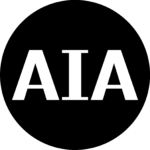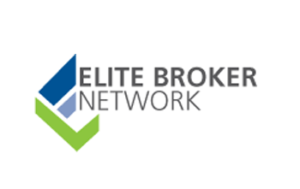We are living in unprecedented times. The current crisis has created a lot of uncertainty. Virtually every business has been impacted in some way–many are struggling to survive.
As always, companies that are forward-thinking and can adapt will probably sustain this crisis. Some may even come out AHEAD. You need to be thoughtful and strategic, and seek advice from experts.
The decisions you make now may affect your firm’s ability to profit, long after this crisis has dissipated (which is hopefully very soon.)
The construction industry has been hit pretty hard by the lockdown measures. Many questions have arisen that nobody has ever expected or thought about before.
Here is a list of common issues that can impact your architectural or engineering firm. They cover a wide range of relevant topics–including contracts, client relations, payment issues, legal concerns, risk management, and more.
1. Delays and work suspensions
Many projects have been shut down, suspended, or severely hampered. Projects are being furloughed or placed on hold indefinitely. As a designer or engineer, you may suffer from the delay. Owners may deduct from your fees, or in some cases, try to hold you accountable if things don’t go as planned. (And right now, very little is going as planned.)
I know it sounds crazy. The government is shutting down projects to protect the public. How can YOU be blamed? Most reasonable owners will certainly see it that way. But here is the thing–owners and developers are losing a lot of money. And some unscrupulous clients or contractors may want to use any trick they can to minimize their losses.
Typically, A/E’s tend to be “low hanging fruit”–you have insurance, and may be easier to blame than contractors. Again, I’m not saying this is likely. But it’s very wise to be prepared before things get ugly.
Check your contract to see if you are responsible for any delays. (Specifically, look for the “force majeure” clause which addresses a suspension of work through no fault of any parties. Incidentally, general contractors have greater contractual force majeure rights than design professionals in the standard AIA language.) Be sure to consult with your risk-management specialist or attorney to determine if you may be held responsible.
2. Social distancing guidelines
If you are working in an office setting or visiting sites, obviously you must keep social distancing guidelines. This may be difficult and inconvenient–but it’s the law. (It is also highly recommended for the sake of public health and safety.)
In addition to fines and penalties, there is something else to be aware of. If somebody develops COVID-19–you may be accountable.
Even if you’re adhering to the rules–do you want to be in a situation where you need to prove that you were following the rules? It’s much simpler to be proactive and avoid any hint of doubt–as opposed to leaving things ambiguous and needing to prove your innocence.
3. Contract awareness
As I always say, not all contracts are created equal. These are unprecedented times, and many legal issues have arisen that we have never seen in our lifetime.
What if projects are delayed for weeks or months? What if the owner suffers major losses and must suspend the project? If major design changes are required due to health concerns, will the owner be forced to compensate you? Does the owner have a responsibility to pay you as an additional service? Could you be held accountable for problems that are no fault of your own? Will you need to visit sites during a lockdown? (More on that question below.)
Even if you see your colleagues impacted negatively–that may not happen to you. It all depends on your contract. You may need to speak with a lawyer or a risk management specialist, to review your rights, and get advice on how you can get the best results for your firm–despite the crazy times we live in.
4. Change orders as a result of the crisis
It is not clear how long the current situation will last, or what kind of changes will be expected of businesses. There are reports that sports facilities will need to make dramatic renovations to accommodate social distancing measures. It’s very likely tha offices and commercial buildings will be expected to make major renovations as well–both internally and externally–to accommodate the new world we are living in.
Some experts are predicting a return to closed office spaces, after a popular trend of open office plans which it now turns out can lead to the spread of germs. Businesses may also require a lot more space. Other ideas being considered are more fresh-air ventilation, no-touch controls, and many other sanitary changes to prevent the spread of germs. (All these may actually be very beneficial for designers in the coming years.)
As a result, it’s very possible that projects which are currently in motion will require major changes. Now, this could be a very positive thing–however it’s very important that it be done according to contract. In addition, you need to make sure that you are properly compensated, and that you are on the same page as the developer and the contractor. Again, when in doubt, speak to an attorney or a risk management specialist.
5. Payment schedule
There is a severe shortage of cash flow. As a result, you may find it hard to get paid on time.
My advice–be PROACTIVE. Don’t just sit around hoping that you’ll get paid. Don’t assume that the check is in the mail. Make sure to clarify with the owner or developer that you are expecting to get paid on time. Be courteous and respectful, but be firm.
Now, they may tell you that they simply don’t have the funds right now due to the current crisis. That’s not the end of the world. You can feel free to negotiate a reasonable payment schedule to accommodate your client. The important thing is to be sure they feel accountable, and to have transparent communication.
6. Stay in touch with clients
I cannot overstate the importance of being in contact on a regular basis.
This accomplishes several things:
- Clients will recognize that they need to be responsive, and cannot just “slip under the radar”.
- Your client will appreciate the close personal connection that you are creating. They will be more likely to fulfill their obligations and be reasonable, if they feel like you care about them.
- Staying in touch gives you a chance to build a personal connection. Many people assume that in business, emotions don’t play a big role. Your client will either fulfill their obligation, or they won’t. This is not true. It has been proven time and again that clients are more likely to fulfill contracts when they feel a personal connection that goes beyond mere business.
GOLDEN RULE: People don’t care how much you know, until they know how much you care.
7. Visiting construction sites
Even though there are many social distancing restrictions, you still may be contractually bound to visit sites in person. It all depends on your contract.
Here is an excerpt of an article written by Attorney and Risk Management Consultant Frank Musica, Esq.:
“In general unless your contract had a clear provision on intervening forces (a “force majeure” provision for example or something in the statement of your duty to perform your services in a timely manner) you do not have a contractual right to avoid being on the site unless a government entity puts you into the non-essential category. And with construction of all types continuing in most states because of the strong lobbying efforts of the Associated General Contractors, if construction is essential then usually design services will not be restricted.
That is why we recommend that firms examine their contracts as a first step and discuss with their client what is a realistic on-site service given government restrictions and inherent dangers. We still see, however, firms put people on sites without the necessary protective equipment, or decide with an owner that they can monitor a site remotely but still sign contractor pay applications that said they were based on “on-site evaluations” even though such evaluations were never made, or local jurisdictions could require professionals to step in and perform the functions of government officials without the legal protections afforded to government officials. And we don’t see firms that immediately contact clients and let them know that restrictions and constraints have changed the level of services necessary and that additional time and compensation are necessary for the changed conditions.
Unless there is a government restriction on your services, you are probably not able to claim impossibility of performance or to trigger other protections. (But, of course, check your contract and with your legal advisor.) That means that whether it is at your cost or your client’s, you will have to increase your protective equipment and change your procedures to perform on-site activities.”
Every situation is unique. There is no “one-size-fits-all” solution in a crisis like this. As always, I am available to answer your questions and help create a game plan for maximum profits and minimal risk.
–Steve Whitehorn
When you are ready, here are 5 ways I can help…..
- Download your free A/E Consumer’s Guide. [Click Here]
- Would you like me or a member of my team to WOW your organization with a presentation? Reply to this email and put “Speak” in the subject line.
- Book a free 30 minute call to get to know us. [Click Here]
- Provide you with a professional liability proposal upon renewal. [Click Here]
- Subscribe to my YouTube channel.
973-564-9330
Steve@Whitehornfinancial.com


